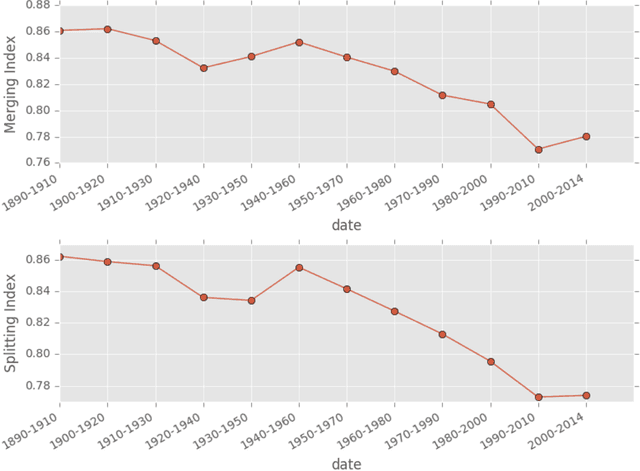Giovanni Siragusa
EcoVerse: An Annotated Twitter Dataset for Eco-Relevance Classification, Environmental Impact Analysis, and Stance Detection
Apr 08, 2024



Abstract:Anthropogenic ecological crisis constitutes a significant challenge that all within the academy must urgently face, including the Natural Language Processing (NLP) community. While recent years have seen increasing work revolving around climate-centric discourse, crucial environmental and ecological topics outside of climate change remain largely unaddressed, despite their prominent importance. Mainstream NLP tasks, such as sentiment analysis, dominate the scene, but there remains an untouched space in the literature involving the analysis of environmental impacts of certain events and practices. To address this gap, this paper presents EcoVerse, an annotated English Twitter dataset of 3,023 tweets spanning a wide spectrum of environmental topics. We propose a three-level annotation scheme designed for Eco-Relevance Classification, Stance Detection, and introducing an original approach for Environmental Impact Analysis. We detail the data collection, filtering, and labeling process that led to the creation of the dataset. Remarkable Inter-Annotator Agreement indicates that the annotation scheme produces consistent annotations of high quality. Subsequent classification experiments using BERT-based models, including ClimateBERT, are presented. These yield encouraging results, while also indicating room for a model specifically tailored for environmental texts. The dataset is made freely available to stimulate further research.
A Bimodal Network Approach to Model Topic Dynamics
Sep 27, 2017

Abstract:This paper presents an intertemporal bimodal network to analyze the evolution of the semantic content of a scientific field within the framework of topic modeling, namely using the Latent Dirichlet Allocation (LDA). The main contribution is the conceptualization of the topic dynamics and its formalization and codification into an algorithm. To benchmark the effectiveness of this approach, we propose three indexes which track the transformation of topics over time, their rate of birth and death, and the novelty of their content. Applying the LDA, we test the algorithm both on a controlled experiment and on a corpus of several thousands of scientific papers over a period of more than 100 years which account for the history of the economic thought.
 Add to Chrome
Add to Chrome Add to Firefox
Add to Firefox Add to Edge
Add to Edge